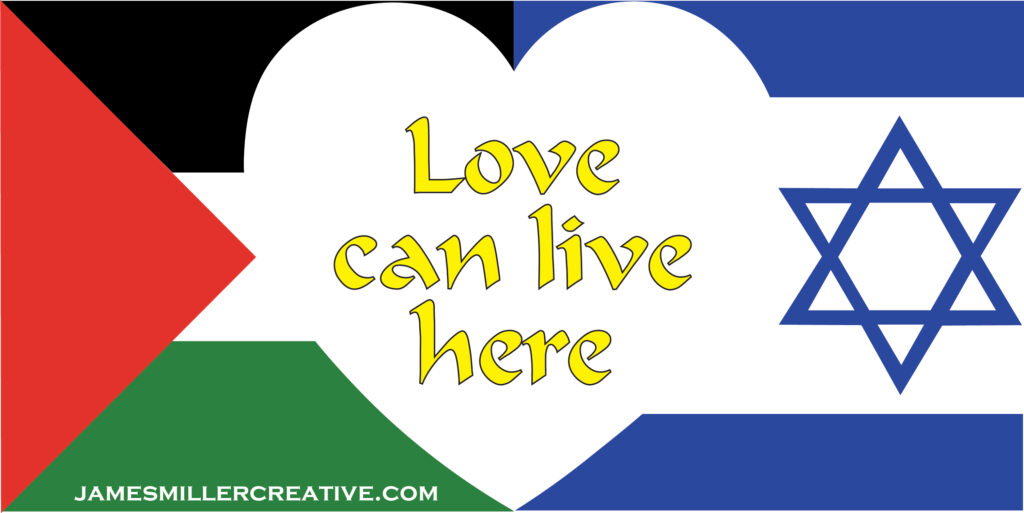For thousands of years, if you believe in time, every effort spent in the search for peace seems to have led to the opposite. Perhaps it’s time to realize the answer lies in the effortless choice to embrace peace, instead of fight for it. – James Miller

Canada’s National Post continues its one-sided coverage of the Hamas/Israel conflict with a November 22, 2023 opinion piece, New poll shows Palestinians are the impediment to peace – not Israel’s war, by Michael Higgins.
Is Higgins really trying to say that if Palestinians gave up their largely negative response to Israel’s invasion of Gaza in response to the Hamas attacks in Israel on October 7, this war would stop?
What nonsense!
The survey Higgins refers to was conducted by a West Bank polling firm and Higgins notes that 74.7 per cent of the Palestinians surveyed favored a Palestinian nation and no Israel. Interpreting numbers is subjective and while Higgins points to the three out of four that would like to see the end of Israel; I point to the one in four that, despite the inevitably strong emotions aroused, have had their support for a two-state solution “increased.”
It takes two to tangle is the old saying and that applies to this and every war and the perennial question is: How do we end this?
One novel solution might be to have Palestinians and Israelis sit down and watch the animated film, How to train your dragon. At one point the hero, Hiccup, turns to Astrid and says the reason he couldn’t kill the dragon, as all good Vikings should do, is that he looked at it and saw the dragon’s fear as his own.
All war, all conflict, all lack of love and compassion stems from the belief in a fundamental, unbridgeable difference between combatants. And where there is a difference, there is fear.
The world gives rise but to defensiveness. ²For threat brings anger, anger makes attack seem reasonable, honestly provoked, and righteous in the name of self-defense. ³Yet is defensiveness a double threat. ⁴For it attests to weakness, and sets up a system of defense that cannot work. ⁵Now are the weak still further undermined, for there is treachery without and still a greater treachery within. ⁶The mind is now confused, and knows not where to turn to find escape from its imaginings.
3. It is as if a circle held it fast, wherein another circle bound it and another one in that, until escape no longer can be hoped for nor obtained. ²Attack, defense; defense, attack, become the circles of the hours and the days that bind the mind in heavy bands of steel with iron overlaid, returning but to start again. ³There seems to be no break nor ending in the ever-tightening grip of the imprisonment upon the mind.
Calls for peace see this world and its inhabitants as united in a oneness that supersedes differences. As long as the minds of those involved in, and observing, a conflict are focused on the differences, the longer that conflict will persist, which is insane, considering everyone agrees they prefer peace to war.
Our Father, bless our eyes today. ²We are Your messengers, and we would look upon the glorious reflection of Your Love which shines in everything. ³We live and move in You alone. ⁴We are not separate from Your eternal life. ⁵There is no death, for death is not Your Will. ⁶And we abide where You have placed us, in the life we share with You and with all living things, to be like You and part of You forever. ⁷We accept Your Thoughts as ours, and our will is one with Yours eternally. ⁸Amen. (ACIM, W-163.9:1-8)
But often, too often, that peace requires the other party to admit they’re wrong. Using the results of this poll to blame Palestinian attitudes for the continuation of this war is, as I’ve stated, bordering on the ludicrous.

Hanny Khoury at work, November 24, 2023
Higgins even reinterprets the Bible to support his belief in war and not peace, claiming the biblical adage, “the lion will lie down with the lamb” should be understood as meaning “the lamb won’t get much sleep.” What a blasphemy, when virtually every spiritual interpretation of this famous passage points to a time when opposites can coexist in peace.
Higgins concludes his opinion peace by asking, “considering the positive support given by ordinary Palestinians to terrorist groups who want to achieve that dream [the annihilation of Israel], what hope is there for peace?”
What Higgins chooses to ignore is that while 40.6% of those surveyed strongly expect and 34.6% somewhat expect Palestine to win this war, 82.6% were very supportive and another 7.6% somewhat supportive of an immediate ceasefire. This sounds more like a people confident of victory who, nevertheless, would rather see an end to the fighting and not a group of people intent on Israel’s elimination at any cost. Just 6.4% of respondents were completely against a ceasefire. To put it simply, nine out of ten Palestinians are supportive of an immediate ceasefire.
I’d be very curious to see if Israelis feel the same and hope someone offers them the opportunity to answer that question. But, if those numbers were lower, should we then blame Israel for the continuation of hostilities?
Or, should we blame irresponsible journalists and others who instead of calling for peace would turn surveys and scriptures to their own small-minded desires for continued conflict and hate?
